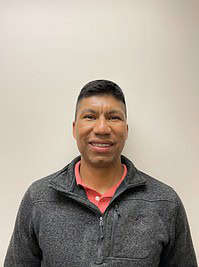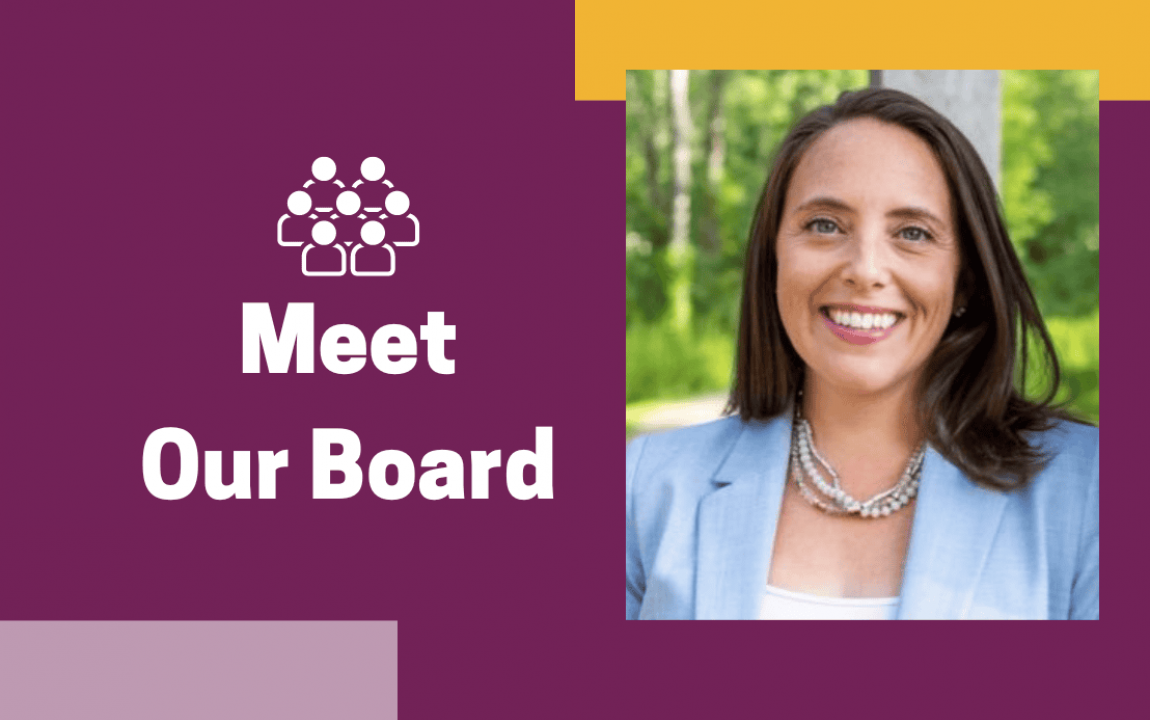The Importance of Nuance and Empathy: Highlighting IINE’s Pinpoint Interpretation Program
When you need a translator in order to be understood, trust is everything.
There’s real vulnerability in relying on someone to accurately relay your meaning, tone, and intention in a language you don’t understand—and there’s security and comfort in being able to trust that your interpreter is both skilled and caring enough to get it right.
Through Pinpoint, IINE’s in-house interpretation service, IINE staff frequently rely on interpreters of speech and translators of text with these qualities to help refugees and immigrants access services, secure housing, and apply for jobs.
Because IINE understands how important this service is in helping newcomers to integrate, and in helping their new communities get the most from their resources and skills, Pinpoint also provides low-cost language services to other nonprofits, schools, hospitals, and community partners. Services include on-site interpretation, remote (phone and video) interpretation on-demand, and document translation services for immigration documents, all in over 300 languages.

In 2023, Pinpoint provided 3,000 hours of interpretation for more than 1,400 clients.
All revenue generated is reinvested in IINE’s programs and services for immigrants and refugees. For Tram Fultz, who manages Pinpoint, this reinvestment is one of the most important reasons for clients to choose the service.

“I think that if you’re mission-minded; invested in diversity, equity, and inclusion; and interested in having your work reflect the changing demographics of our country, then you want to use organizations that represent that to the fullest amount possible.”
Tram points out that Pinpoint supports IINE’s mission even further through its hiring practices: “We try to employ our refugee and immigrant clients to give them that leg up into the middle-to-upper reaches of our economic society.”
One important part of working within IINE and hiring IINE clients is the deep empathy that Pinpoint translators bring to their work. Tram points to a recent experience working with pro bono lawyers to assist Afghan and Haitian families in applying for asylum as illustrative of this compassion.
“The feedback that we’ve gotten on our interpreters is that they’re very sensitive. That’s so important because just the very nature of the fact that you have to seek asylum means something really, really terrible happened.”

It’s easy for Tram to empathize with Pinpoint’s clients as well. Tram was born in Vietnam, and her father met her mother shortly after escaping from a reeducation camp. When Tram was very young, she and her family fled to the U.S. as refugees. She remembers very well what it was like to be a non-native speaker suddenly immersed in a foreign culture and expected to succeed.
“I was six years old, and I didn’t know any English at all—maybe I could say ‘hello,’ but that was about it—and I went to the first grade [in Connecticut]. There were no interventions. There was nobody that even had the capacity to psychologically understand what learning a new language would be like. I remember looking around in the lunchroom for someone who looked like me and coming up with nothing. And I spoke no English. So, that whole first year of first grade, I didn’t say anything because I didn’t understand what was happening. But by the time I repeated the 1st grade the next year, I had enough mastery of the language to get the kind of grades expected of me by my family.”
“On top of all that, my family didn’t speak English either, so I was basically the translator at, you know, seven years old.”
These experiences especially have brought Tram to view translation services as far more than a practical matter.
“Speaking in one’s mother tongue, with all of its intricacies, is really important. If we lived in a perfect world, it should actually be a right. We should have the right to be able to communicate in languages that we understand. That’s why in all the sci-fi, everybody has some implantable device so that they can automatically communicate, and other people can receive what they’re saying.”
Tram believes that when clients choose Pinpoint, whether they’re hospitals, municipalities, or individuals, they are making an important moral choice. They’re choosing honesty and accessibility.
“It means that they’re trying to look at people holistically, rather than at a demographic level, and we’re proud to provide them with support.”
Juan, one of Pinpoint’s interpreters, fully shares in this sense of mission.
“I cherish every single encounter [with a client],” he says. “It’s the satisfaction of knowing that someone is able to be assisted.”

Juan was born in Colombia. He moved to the U.S. when he was 22 years old with his mother, who does not speak English. Like Tram, his experience as a translator began with helping his family. He says he was drawn to Pinpoint “as a way of applying what I know to help bridge communication for folks like my mother, especially in a medical setting.”
While he translates for a wide variety of clients, including legal, educational, and corporate, Juan is particularly passionate about interpreting in a medical setting because of his own professional background. Juan was once a medical technician in the New Hampshire National Guard and now primarily works as a physician’s assistant at a medical center in NH.
Part of what he finds gratifying about interpreting in a medical setting is that he understands the stakes, having had past experiences in which he felt that highly important information was not being translated accurately when people were in great need of help. He says, “It is a good feeling when [it’s] not just interpreting, but also making sure [people] understand.” Juan’s empathy and dedication have led his clients to request him again and again.
Juan emphasizes that he translates for Pinpoint not necessarily because he needs this work—he mostly translates on his days off from his primary job—but because he finds it so fulfilling. “I truly enjoy that people feel informed,” he says.
Pinpoint connects communities and cultures through language. Learn more about our interpretation and translation services.
Related Articles

Dispelling 10 Common Myths About Immigrants and Refugees

The International Institute of New England Receives Historic Philanthropic Gift from Bancel Philanthropies
